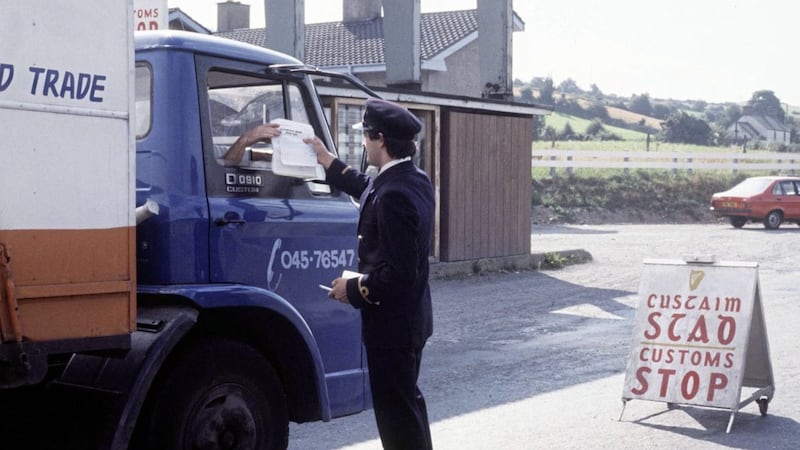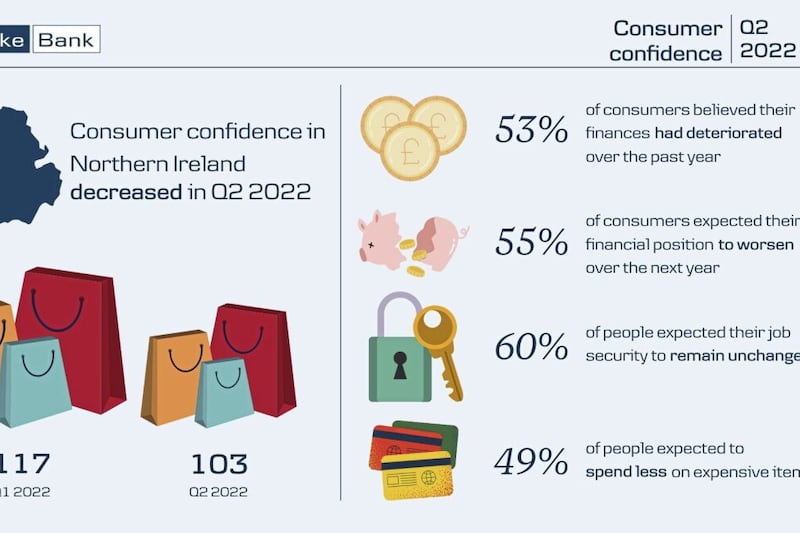This week, the UK Government and the EU are back around the table for the third round of face-to-face Brexit negotiations. In the run up to these meetings, the Department for Exiting the European Union published a number of position papers and future partnership papers. These cover topics ranging from future customs arrangements to confidentiality obligations to resolving future disputes. However, of particular significance for people living on both sides of the border, is the position paper published on Northern Ireland and Ireland.
The paper focuses on four areas: continued support for the Good Friday Agreement; preserving the Common Travel Area; avoiding a hard border from a trade perspective and continuing North-South and East-West co-operation (with a focus on energy).
All four of these areas are of particular importance for the Northern Ireland economy. The peace and stability brought about by the signing of the Good Friday Agreement has been an important factor in attracting investment into Northern Ireland. The Common Travel Area, and of course the freedom of movement within the EU, makes it easy for British and Irish nationals to live and work in each other’s countries. The lack of a hard border makes it relatively straightforward for local businesses to export goods to the Republic of Ireland. And a reliable energy supply, facilitated by the Single Electricity Market, is crucial for both households and businesses.
In the first section of the paper, the UK Government proposes that all parties confirm their support for the peace process, agree that Irish citizens in Northern Ireland should continue to hold EU citizenship and commit to continued funding linked to the peace process. These proposals are in line with the goals previously put forward by the UK Government, the Irish Government and the EU. Therefore agreement on these matters should be relatively straightforward.
Another area with the potential to be resolved fairly quickly is the preservation of the Common Travel Area. The Common Travel Area allows UK and Irish nationals to live, work, study, receive benefits, access healthcare and vote in each other’s countries. It clearly has both social and economic benefits and has been in place since before the UK became a member of the EU. It is also consistent with EU law and the UK Government has committed to ensuring that the continued operation of the Common Travel Area will not have an adverse impact on EU citizens wishing to live in Ireland.
There have been claims that maintaining the Common Travel Area could make it easy for EU citizens to illegally enter the UK, via Ireland, after Brexit. It is true that, physically, people may be able to move from Ireland into the UK without too much difficulty but, once there, things would be quite different to how they are now. EU nationals would not necessarily have the right to live and work in the UK if they entered the country in this way, making a move to the UK relatively less attractive. Indeed, the UK Government make this very point in the position paper by highlighting the importance of the right to work and receive benefits as mechanisms to control immigration levels.
When it comes to the movement of goods and the need for border checks, things are much more complicated. This part of the paper includes a proposal of a number of key principles that the future border arrangements should be based on. In addition to this, a number of ideas are put forward that may make it easier to minimise trade barriers. These include making small businesses exempt from customs requirements, tracking goods to their final destination and regulatory equivalence between the UK and the EU on agri-food products.
In practice, avoiding a hard border will involve some compromise on all sides. The UK may have to make a number of concessions on regulations and product standards that could limit the scope of future trade deals with other countries. While the EU may have to accept less product checks than would normally be preferred at an entry point to the single market and customs union. But these areas, which are related to trade, are not yet up for discussion. Ultimately, the mechanisms for monitoring and facilitating trade at the Northern Ireland border can only be finalised once the terms under which the UK and EU will trade are discussed and agreed.
It is encouraging to see energy provision and the Single Electricity Market included in the UK Government’s paper given the importance of energy supply to households and businesses on both sides of the border, and that work is currently underway to reform the Single Electricity Market to ensure compliance with EU legislation.
The UK Government’s position paper on Northern Ireland and Ireland is a useful contribution towards finding a solution to a complex issue. However, much work still needs to be done. More details are needed on what will actually be required from businesses that buy and sell across the border, how compliance with new trading arrangements will be monitored and how long businesses will have to implement the processes necessary to operate in a new commercial environment.
As mentioned above, trade terms will be a key determinant of the future border arrangements. However, it will likely take some time before these details emerge – precisely how long, is still uncertain. The UK Government believes that ‘sufficient progress’ on financial obligations, citizens’ rights and the Northern Ireland border can be made by October, allowing talks to begin on the future relationship between the UK and EU this year. But it remains to be seen if what the UK Government considers to be ‘sufficient progress’ is the same as the EU negotiators.
Conor Lambe is Danske Bank economist in Northern Ireland. Follow him on @ConorLambe. Next week Richard Ramsey








